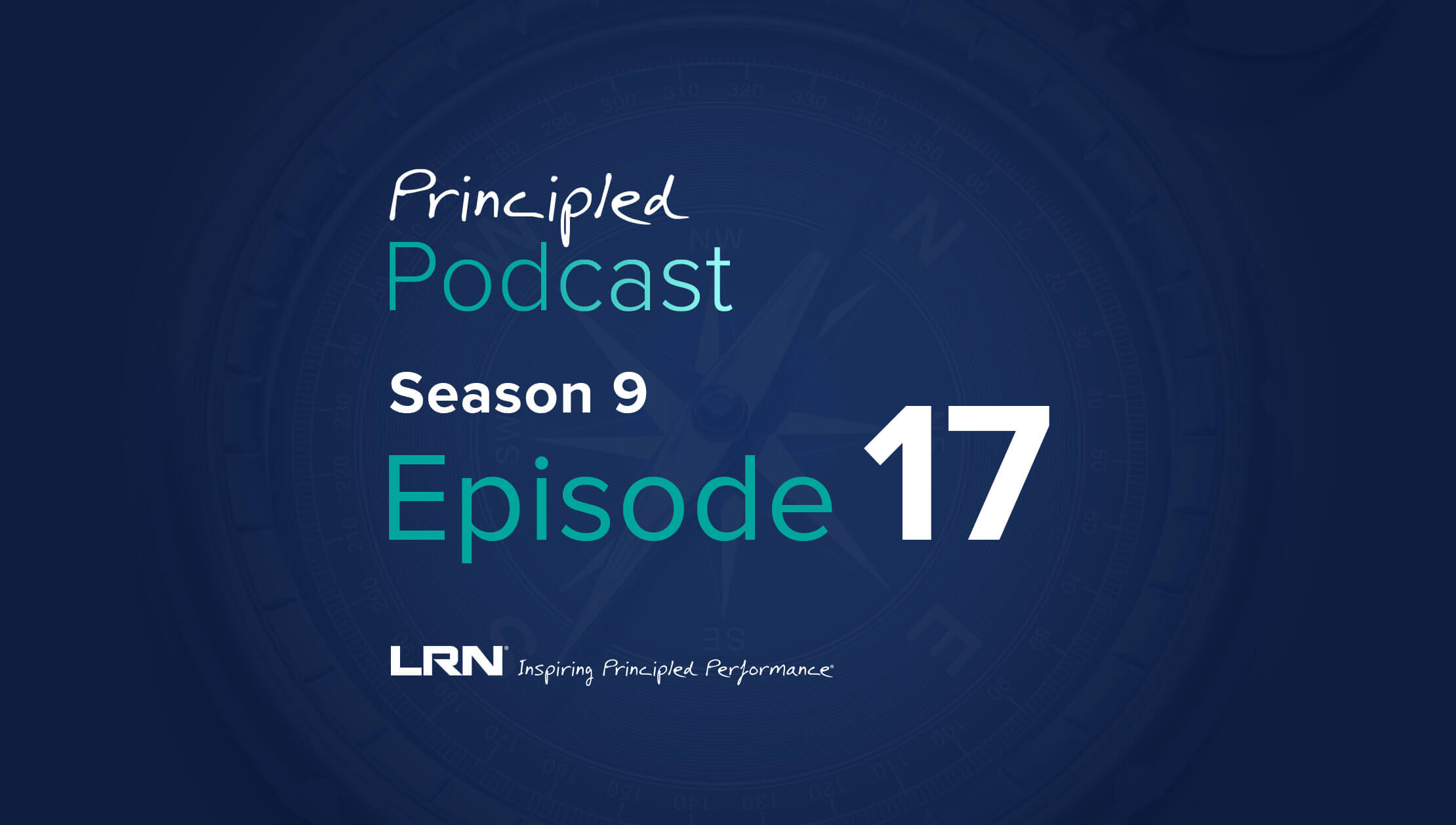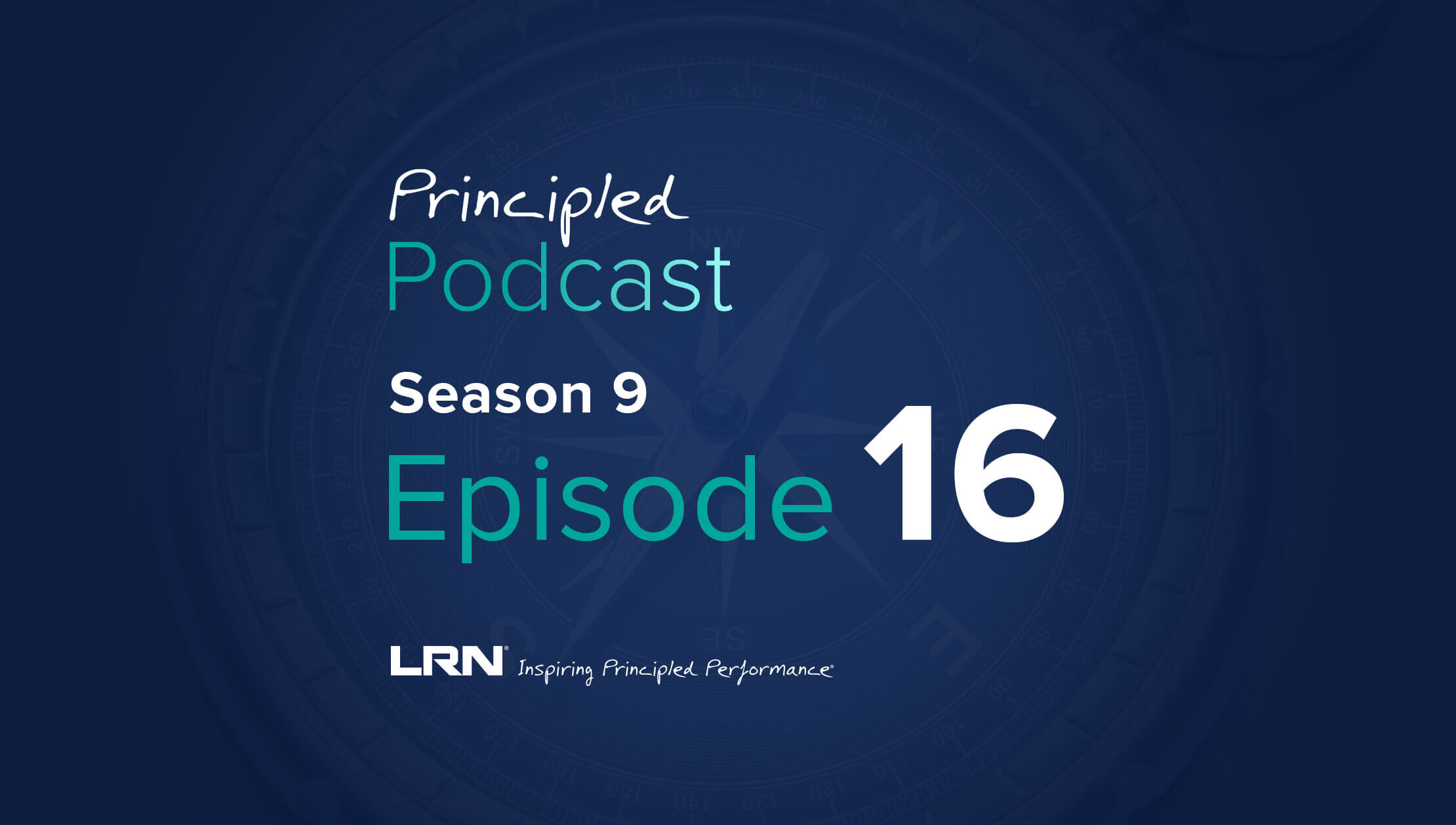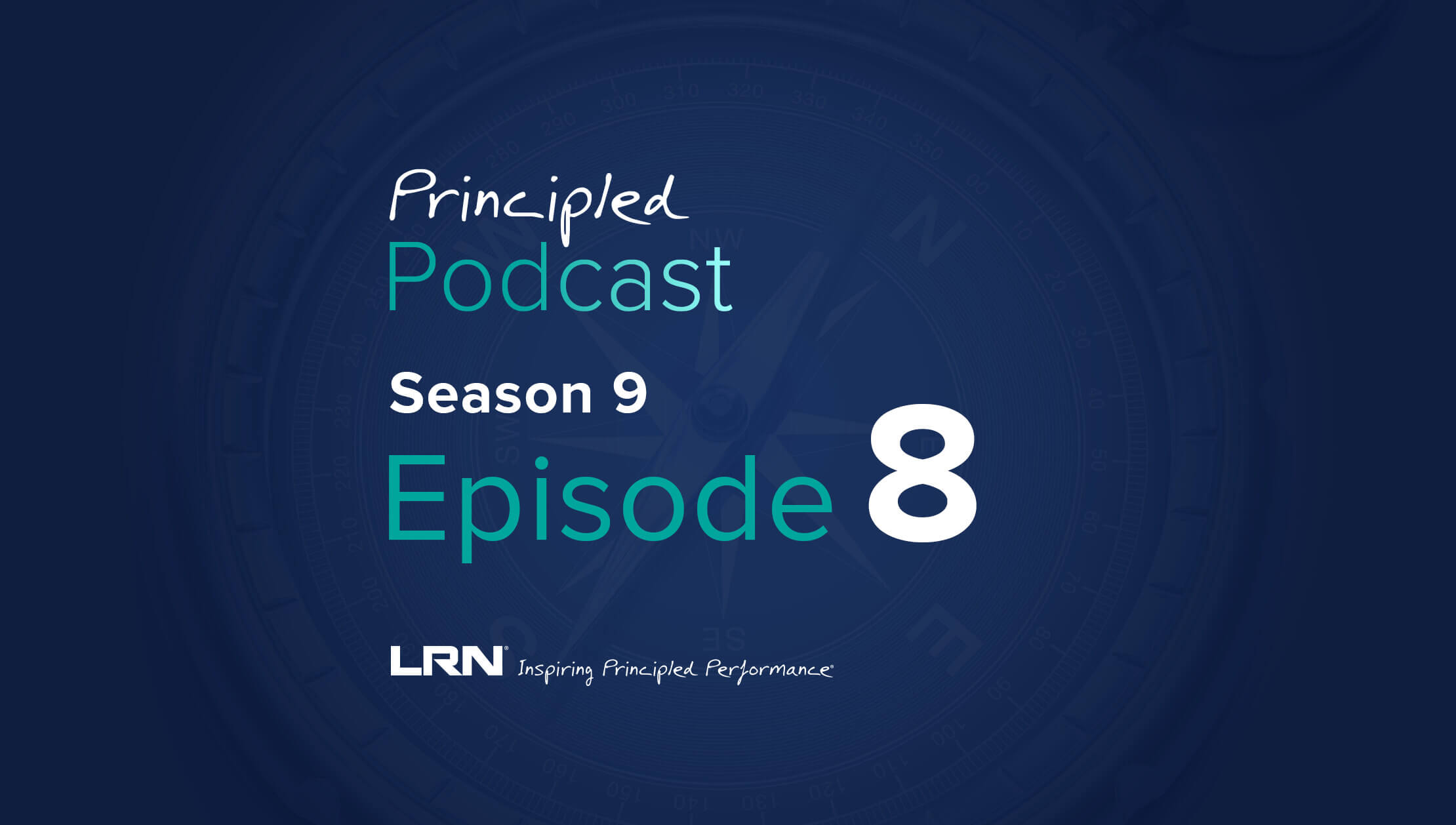Building a culture that revolves around sustainable human values, ethics, and compliance is about more than doing the right thing. Recent research from LRN—in both the Benchmark of Ethical Culture and the 2022 Ethics & Compliance Program Effectiveness Report—shows that an organization dedicated to sustainable human values will exhibit superior performance across operations and be significantly more successful at integrating ethics and compliance into its day-to-day operations.
Values-based governance is also a foundational part of environmental, social, and governance (ESG) objectives. ESG is an area of increasing importance for organizations and their boards of directors—and for good reason. Ernst and Young (EY) recently released findings from the second edition of their 2022 Long-Term Value and Corporate Governance survey, which aims to understand the progress and challenges of European boards in driving long-term value and the implications for corporate governance. What EY found was a commitment across European boards to put ESG at the center of their strategy, execution, and oversight responsibilities.
What EY's Long-Term Value and Corporate Governance Survey tells us
The Long-Term Value and Corporate Governance survey builds upon inaugural EY research that surveyed 200 corporate directors and senior managers, split across 15 European countries and 25 industry segments. Of the survey respondents, 20% were chairmen or non-executive board directors, while another 20% was made up of CEOs. The rest came from various parts of the C-suite.
Below is a summary of key findings from EY's report:
- European companies and boards are putting ESG at the heart of their strategy to build risk resilience, while also driving new growth opportunities.
- Success means addressing major external and internal challenges, including economic uncertainty and the need to establish a clear ESG mandate for the board.
- Three priorities will support strategic ESG decision-making: the right board operating model, innovative approaches to reward, and effective ESG reporting.
What is "ESG," and why does it matter?
As noted above, ESG stands for environmental, social, and governance. These three factors determine the sustainability and societal impact of an organization.
In its report, EY acknowledges that the concept of ESG casts a wide net, leaving it up to individual companies to develop definitions for what ESG themes are most important to them. This ultimately informs their priorities, key performance indicators, and timelines for tracking progress and evaluating overall success.
ESG objectives are often baked into other strategic plans within a company, rather than being considered as its own entity. This holistic approach helps reduce conflicts with the company's other goals and objectives. Boards can better understand any trade-offs, sacrifices, or impacts a focus on ESG may create with other departments.
Integrating ESG into board and business strategy protects risk, drives growth
So why has ESG become such an integral part of company's overall strategies for building risk resilience? For one, ESG issues are top of mind for many investors, customers, employees, and society at large. The EY report revealed that 84% of people said the pandemic made stakeholders in companies more likely to believe that "our company will drive societal impact, environmental sustainability and inclusive growth." That's up from 66% of people in the previous year's survey.
Robust governance is also a key success factor in driving long-term, sustainable growth—with encouraging progress being made. The report found that 82% of respondents felt they had made "significant progress" in developing the risk management system required to mitigate ESG risks.
The report also found that connecting ESG to strategy is key to creating and protecting sustainable long-term value. The number one benefit of integrating ESG elements into overarching corporate strategy is the ability to develop new, sustainable products that help drive revenue while also addressing the concerns of ESG-conscious consumers, followed by risk resilience.
Boards must clarify sustainability goals to successfully meet their ESG agenda
To succeed and deliver against their ESG agenda while managing significant volatility and uncertainty, boards need to clarify their sustainability mandate. According to survey responses, this poses two challenges:
- How to drive long-term value in a volatile and challenging macroeconomic environment. When it comes to generating long-term value, “near-term economic uncertainty” is the number one challenge for companies that are optimistic about their growth prospects over the next 12 months and for those who see flatlining or declining growth prospects.
- How to maximize long-term value when the board’s role in ESG is still evolving. The number one internal challenge facing companies today when it comes to generating long-term value through a strong ESG proposition is lack of commitment from the board to make decisions that fully integrate ESG factors and create long-term value.
Every organization will have different requirements needed to maintain sustainability. The first step is agreeing that ESG is a priority to be addressed, and defining what challenges exist in addressing it as a business need.
3 board priorities to strengthen governance and ESG strategy
According to the EY survey, there are three places in which an organization can bolster its board governance system to assist with ESG:
- Board oversight. Ensure your board has the right people, skillsets, and structure to support ESG initiatives. Today, 49% of boards discuss the ESG agenda and reporting at every meeting—up from 15% two years ago.
- Reward and remuneration. Incentivize buy-in from executives by offering remuneration. Changing the approach to such rewards and incentive is the number one priority for governance change over the next two years when it comes to supporting the ESG agenda.
- Trust and transparency. 83% of survey respondents noted they wanted to see the "reporting of ESG performance measures against a set of globally consistent standards become a mandatory requirement." This is in line with the 89% of investors who said the same in the sixth EY Global Institutional Investor Survey. The path forward is clear: move towards establishing agreed-upon standards, then develop an effective reporting mechanism for tracking and maintaining them.
To meet growing ESG demands, it also important that board directors play an active role in building ethical corporate culture. The joint report by LRN and Tapestry Networks, Activating Culture and Ethics from the Boardroom, recommends that leaders should incorporate the following key themes into their larger business strategy:
- Measurement. Directors must have a way to accurately read and reflect on their corporate culture.
- Oversight. Business leaders need to have oversight over a company's culture, ethics, and compliance—which requires time, resources, and energy.
- Trust. Trust is a key transparency enabler that is indispensable to the ability of the board to oversee a culture change that is more conscious towards corporate impact on the climate. That is true throughout an organization—from the junior members to the C-suite. The board can only facilitate culture change when there's trust at every level.
- Accountability. Boards are responsible for ensuring that culture and compliance are shaped by executives. This is not negotiable, but approaches may differ.
The key takeaway
With more than half of E&C professionals (52%) planning to prioritize ESG in their programs in the coming year, board directors have a significant role to play in shaping their organizational approach to ESG—especially when it comes to governance. It's up to directors to communicate that their ESG strategy should be well-integrated with every strategic aspect of the company to ensure optimal alignment of company-wide priorities. To learn more about the role of the board, check out our collection of board-specific resources at LRN.com.



